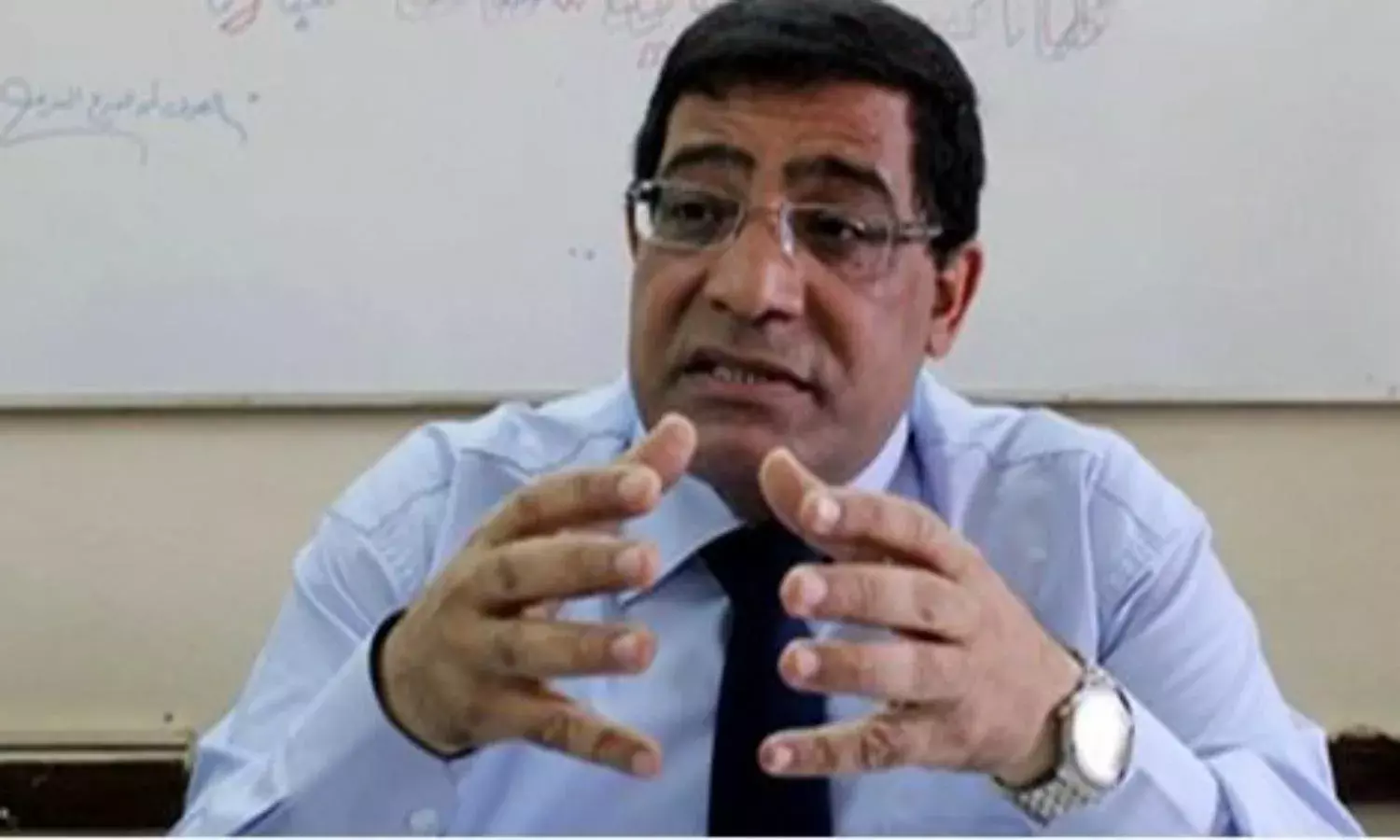Egyptian Military’s Control of Economy Escalates
Political muzzling, economic monopoly

The sudden arrest of Egyptian economist Abdel Khalik Farouk last month marked only the beginning of an onslaught against the freedom of speech and expression in the country. Farouk was arrested for his recent book titled Is Egypt Really a Poor Country? The strategic muzzling of dissenting voices continued in the arrest of prominent cleric Sheikh Mohamed Jebril in earlier this month, followed by 19 more arrests of human rights lawyers such as Huda Abdelmonem, Ezzat Ghonim and others.
Although Farouk was later released on court orders, his book which ferociously criticises the economic policies of Egyptian President Abdel Fattah Al Sisi, caused a major hullabaloo.
An essential aspect of Sisi’s economic policies, not often questioned, is the deliberate manner in which Egypt's military monopolises control of the economy. The Egyptian deep state, a nexus of security forces, general intelligence and military intervention, and the authoritarian and capitalist nature of the military-industrial complex, remains opaque both to academics and journalists.
‘There’s no structured public life. The regime knows how to retaliate in a substantive manner to get everything back,’ says Adel Iskander, a British-born scholar of the Middle East.
Ahmed Naguib, who was one of the first five revolutionaries that started the 2011 uprising in Egypt, says that ‘even after the revolution, the military controls the very functioning of Egyptian politics. But the paranoia is immense, as there are more than 10 disappearances happening anonymously every day.’
Of the powerful branches of the intelligence services, Naguib adds, ‘in Nasser’s time General Security had the power, but after the 2011 Arab uprisings it was overtaken by Military Intelligence.’
‘The military is definitely the strongest institution in Egypt, and they also control the economy,’ according to former Indian diplomat Anil Trigunyat. ‘Certain fragments of society feel that the revolution was hijacked by the military eventually.’
Elaborating on this, Amr Adly, non-resident scholar at the Carnegie Middle East Centre, says that ‘though Egypt has become more stable since 2014, the stability came at a major cost: internal repression, the curtailment of civil society and mounting external debt. The economic recovery will suffer if tourism and exports do not generate the needed revenue.’
The military may well end up obstructing this process. As scholar Gijs Verbossen states, ‘The military's power within the economy has increased. Big tenders, like for the construction of the second Suez Canal, were bagged by military-affiliated companies. During Mubarak’s rule there was stiff competition between commercial capitalists and the military. But today the military is the commercial gate-keeper.
‘However, this might backfire for Sisi when the major revenue goes to the military and not the economy.’
‘The military in Egypt has overstayed,’ according to Hisham Kassem, who is vice-president of the liberal opposition party Hizb el Ghad (Party of Tomorrow). ‘Sisi wants to build a USSR style power dynamic which will have a detrimental impact on the economy.’ Kassem, who is now approaching 60 years of age, sighs in disappointment, saying that now in his lifetime, he will not be able to witness another uprising.
Says the British journalist Hugh Miles, ‘There is no difference now between Sisi, government and regime.’ On the odds of another uprising in Egypt, Miles is confident. ‘The post-colonial order exists in the Arab world. If the old order in Saudi Arabia collapses, Egypt will collapse too.’
If revolution must be preceded by crisis, that certainly seems to be present. Egyptian political commentator Ibrahim Elgendy describes the country's economic scenario thus: ‘30% of the youth are jobless. Inflation increased from 10% in 2014 to 33% last year. Almost 38 million Egyptians (roughly 40% of the population) are below the poverty line. 90% of the Egyptian media is controlled by the military. The destruction of the private sector in Egypt will have implications on the economy.’
And friction is rising within the military, according to Lorenzo Nanetti, senior analyst for the Italian publication Il Caffé Geopolitico. ‘While the Supreme Council of the Armed Forces controls the deep-state in Egypt, the military is not a unified entity. They have crushed the fragmented opposition and have foreign support; there are also regular resignations and sackings. Also, terrorist activity in the Sinai is a major impediment for the army.’
Says an investigative journalist at Mada Masr who wished to remain anonymous, ‘Although the revolution failed, it changed something intrinsically within the Egyptian elite. The paranoia and fear of another uprising eventually leads to more schizophrenic crackdowns. The economy nevertheless has suffered the most after the implementation of strict austerity measures in 2014.’
Civilian dialogue with the military through democratic channels is simply not possible. As Maye Kassem, who teaches politics at the American University in Cairo, says, ‘Sensitive issues like budgets cannot be debated with the military.’
‘The military controls 65% of the economy,’ estimates veteran Egyptian journalist Yehiya Ghanem. ‘Both General Intelligence and Military Intelligence have created their own political parties. Many sectors of the industry have been monopolised by the military since July 3, 2013. They continue to meddle, fiddle and intervene in the economy.’
‘The military is able to provide products at subsidised rates to the lower income segments of society,’ according to former journalist Shahira Amin. ‘At the same time, the repression is huge. Hundreds of websites are blocked. Several dissidents are arrested and tortured. The altercation within the military is growing apparent. For example, when Colonel Ahmed Konsowa announced his presidential candidature, he was prosecuted and sentenced to six years in prison. Senior officer Shafiq was put under house arrest.’
The military’s subjugation of the Egyptian economy could prove to be a major downfall if commercial companies, startups and business ventures are not included. Rising foreign debt, increasing unemployment and growing paranoia against the deep state may further escalate the already palpable tension. Whether this process could launch another uprising against the regime is still in question.



